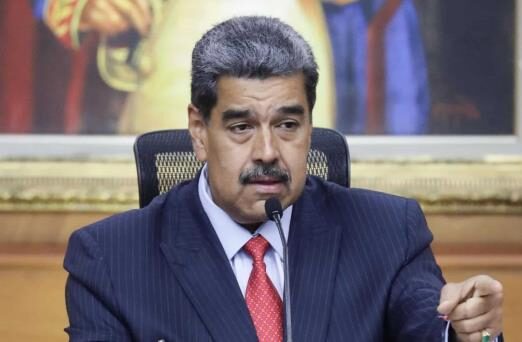BTN News: In a recent escalation of tension between the Venezuelan government and global tech companies, President Nicolás Maduro has leveled serious accusations against WhatsApp, a subsidiary of the American tech giant Meta. Maduro claims that the popular messaging platform has handed over a vast trove of personal data belonging to Venezuelan citizens to key figures of the country’s opposition, notably Edmundo González Urrutia and María Corina Machado. This data allegedly includes sensitive details about users, ranging from their personal communications and family connections to their social networks and media preferences. These allegations come amid an intense political climate in Venezuela, following a contentious presidential election in which Maduro was declared the winner—a result fiercely disputed by the opposition, which has accused the government of electoral fraud. The accusations have ignited further controversy and have heightened the already simmering political and social unrest in the nation.
Maduro did not mince words when expressing his outrage, particularly targeting María Corina Machado, whom he labeled as a “terrorist and murderer” and a “fugitive from justice,” and Edmundo González Urrutia, whom he described as a “war criminal.” According to the Venezuelan president, WhatsApp has provided these opposition leaders with comprehensive information about the app’s users in Venezuela, allegedly revealing their identities, social connections, communications, and even their personal interests and media consumption habits. Maduro’s assertions, though lacking in concrete evidence, have resonated with his supporters, who have long been primed to view global tech platforms as extensions of what the government frequently describes as “imperialistic forces” aiming to undermine Venezuela’s sovereignty.
This narrative has become a key element in Maduro’s ongoing campaign against social media platforms and messaging apps like WhatsApp. The president has accused these platforms of being weaponized by opposition forces to destabilize the country, specifically claiming that they are being used to intimidate military personnel, police officers, and community leaders. In a recent public address broadcast by the state-run channel VTV, Maduro urged the Venezuelan populace to expedite the removal of WhatsApp from their devices, framing it as a necessary step towards protecting the nation’s integrity from what he perceives as technological imperialism. “We must reach the point where we liberate ourselves from WhatsApp,” Maduro declared, emphasizing his belief that the application is in the hands of enemies of both Venezuela and humanity at large.
The accusations against WhatsApp are part of a broader strategy by Maduro’s government to crack down on digital platforms that it perceives as threats. Just last week, the president ordered a temporary suspension of the social media platform X (formerly known as Twitter) for ten days, a move that further stoked tensions in a country already on edge. These actions have followed the July 28 presidential elections, an event that has significantly deepened the political divide in Venezuela. The government’s declared victory, which the official electoral body has validated, has been met with widespread rejection by the opposition, leading to a wave of protests across the nation. The Maduro administration has condemned these protests as criminal and terrorist activities, while the opposition and its supporters argue that the government’s response has been excessively brutal and oppressive.
According to state sources, the post-election unrest has resulted in over 2,400 arrests since July 29. The clashes between protesters and security forces have also led to the deaths of 25 individuals, with each side attributing the violence to the other. The government maintains that the opposition is to blame for inciting violence, whereas opposition figures and activists accuse state security forces of carrying out acts of repression under direct orders from high-ranking officials.
Maduro’s claims about WhatsApp have further inflamed an already volatile situation, as the opposition continues to challenge the legitimacy of his government. The allegations have sparked a broader debate about privacy, data security, and the role of technology in political conflicts. In a country where digital communication is a lifeline for many, especially in the face of government censorship and control, the president’s calls to abandon WhatsApp could have significant implications for how Venezuelans connect and organize.
As the political crisis deepens, the future of digital freedoms in Venezuela remains uncertain. The government’s actions against platforms like WhatsApp and X suggest a tightening grip on information flow, which could further isolate the country from global communication networks. For now, the tension between Maduro’s government and international tech companies continues to escalate, with no clear resolution in sight. The situation highlights the growing intersection of technology, politics, and power in a world where information is increasingly both a tool and a weapon.


